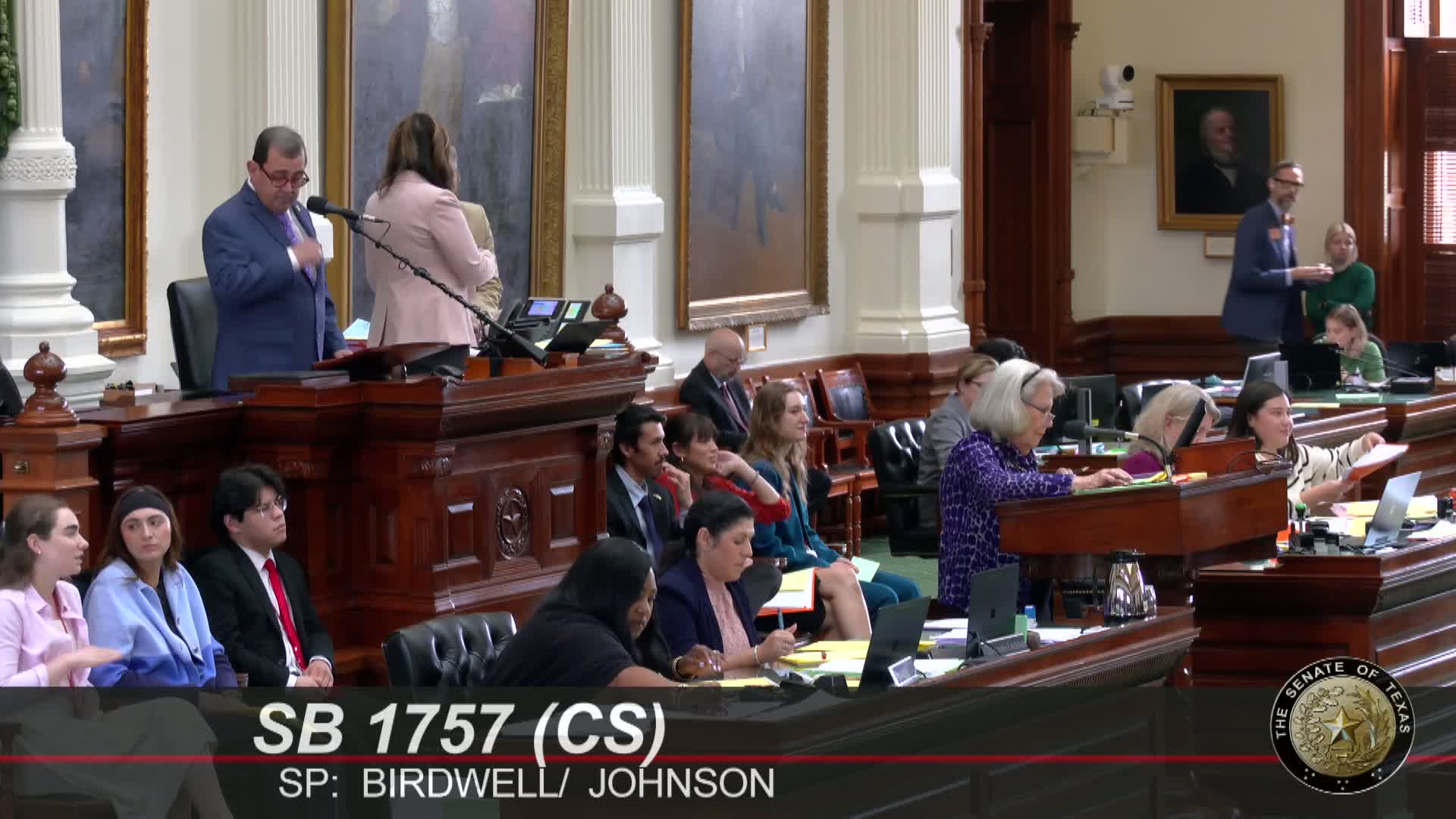Senate creates optional enhanced-control permits for rock crushing facilities, raises production ceiling
Get AI-powered insights, summaries, and transcripts
Subscribe
Summary
Committee substitute Senate Bill 1757 permits aggregate production operations (APOs) to obtain voluntary enhanced-control permits that require monitoring, mitigation and public reporting in exchange for a streamlined permitting track and an increased production ceiling up to 1,500 tons per hour.
The Texas Senate passed committee substitute Senate Bill 1757, which creates an optional enhanced-control permit for aggregate production operations (APOs) — including rock crushing facilities and quarries — that implement additional pollution and reclamation controls. The bill extends a permitting model currently available to concrete batch plants and makes it optional for APO operators who meet enhanced standards.
Sponsor Senator Brian Birdwell said the enhanced control permits are meant to “incentivize facilities to implement additionally neighborly controls that exceed the scientific environmental requirements of a TCEQ standard air permit.” Under the new permit, eligible APOs could increase production beyond the typical 200 tons per hour up to a maximum ceiling of 1,500 tons per hour without seeking a higher-tier permit that triggers a contested-case hearing, provided they meet monitoring and best-practice requirements.
To qualify, an APO must monitor water quality, seismicity and emissions and make that data publicly available for at least one year; implement best-management practices for water conservation and dust mitigation; submit a post-reclamation plan; and maintain emergency-notification plans for surrounding property owners and tenants. The bill requires a public meeting for each new facility application and aligns inspection cadence with existing standard-permit statutes.
During floor consideration the measure recorded opposition in the roll call: the motion to proceed was approved 26 ayes to 5 nays on one vote; final passage also recorded 26 ayes and 5 nays. Supporters said the approach encourages controls and streamlines permitting for facilities that adopt stronger mitigation measures. Opponents during committee testimony and the floor roll call raised concerns about air quality, water impacts and adequate public input.
Senate action: suspension of regular order; passage to engrossment; suspension of three-day rule; final passage. Vote tallies: 26 ayes, 5 nays.
